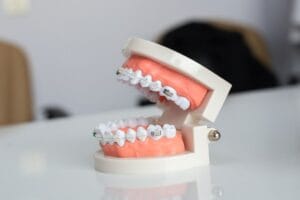Ever had a difficult patient? You’re not alone.
Every dental office must deal with all sorts of characters, including the ones who are deemed “hard to deal with.” However, even the most difficult patient has his or her reasons for being that way; so, it’s best to take a step back and walk in their shoes. How? By caring for them, regardless of their situation.
This brief guide will show you the types of difficult patients that you might come across as a dental hygienist, and what you can do to make the interactions with them more professional.

Defining “Difficult”
The truth is, there is no one definition of a “difficult” patient. In fact, a difficult patient can come in all shapes and forms, depending on the situation. Here are three common types of “difficult” dental patients that you might encounter, and how you can learn to cope with each of them:
Handling An Angry Patient
Suppose a patient shows up to their appointment in a bad mood. How can you make them happy?
“Keep in mind that many patients tend to be a bit frustrated when showing up to the dentist,” says Sammy Lewis, a health writer. “It also doesn’t help when they’ve already experienced enough stresses from outside the dentist office. That’s why it’s important to ask questions and see if you can do anything to make their visit more comfortable. Also, look at their body languages, such as muscle tension, clenched fists, or stress sighing. And, give them time to open up about what’s wrong, so that they can respond with a clear head.”
Handling A High-Maintenance Patient
Suppose you had a patient that demanded appointments on the same day or the next. Suppose they started accusing you of not spending enough time with them on their appointment day. Or, perhaps, they often come back for adjustments to their dental procedures. They even come with a multitude of questions about billing, procedures, etc.
For high-maintenance patients, you’ll need to treat them with the utmost respect. Shower them with kindness, and offer perks like a headset for listening to music during a procedure. Also, be more than happy to answer any questions that they might have, and be patient as you do so.
Handling A Patient Who’s Flaky
Now, what if a patient was always showing up late for appointments? What if they had infinite excuses on why they were late in the first place? And what if they start getting offended when they receive a fee for missed appointments?
Luckily, there are many scheduling apps and software that can:
- Remind patients of when their next appointments are
- Give patients the option to cancel appointments, if need be
- Allow patients to confirm appointments
- Keep records of patient communications, AND
- Offer empty slots (due to cancellations) to people needing appointments
Building Trust
“Patients have their reasons for not being happy or content when visiting the dentist,” says Fred Richardson, a dental writer. “Whether they have a general fear of dentists, refuse much-needed treatment, or don’t always show up to appointments, patients are reliant on trusting people, including dentistry. Therefore, it’s best for dentists to build trust with their patients so that patients are more likely to come to the dentist’s office.”
Here are some helpful tips on building trust with your patients:
- Be truthful, when communicating with your patients. Don’t ever sugarcoat things. Patients want things to be transparent between you and them.
- Be empathetic towards patients. Understanding your patients on a personal level can help strengthen the relationship between the two of you. And, when you’re there with them every step of the way, it makes the relationship even better.
- Be cautious when talking about the reality of a treatment. You don’t want to scare them with the possibility of there being pain during a procedure. While it’s still important to be transparent about procedures, it’s also important to approach these topics as gently as possible.
Conclusion
As you can see, there’s more to a “difficult” dental patient than one might assume. So, be sure to treat everyone with respect, and to tend to their needs as much as possible. Also, keep a cool head when dealing with many characters that come into the dentist’s office.
Good luck!











